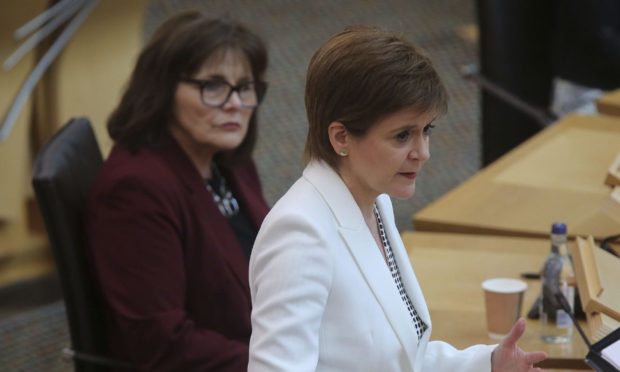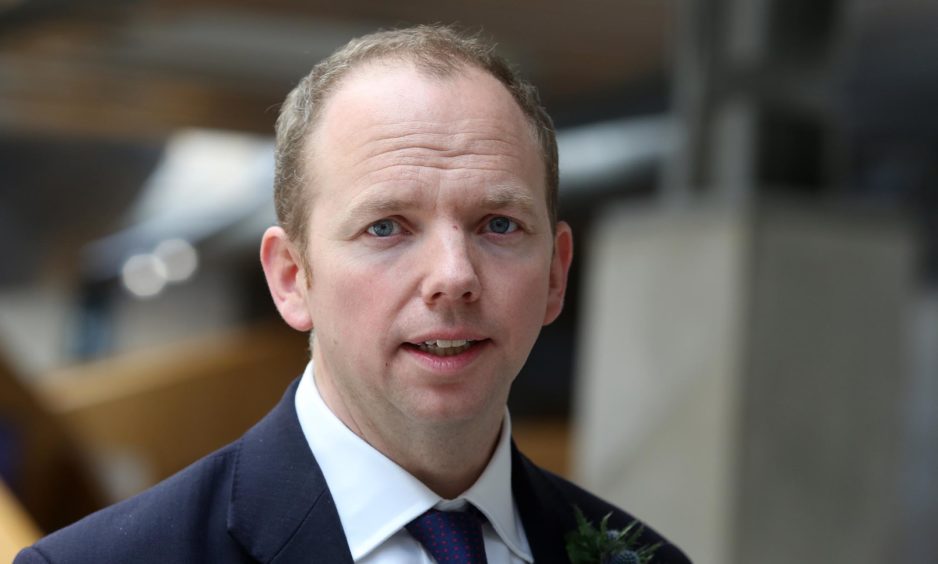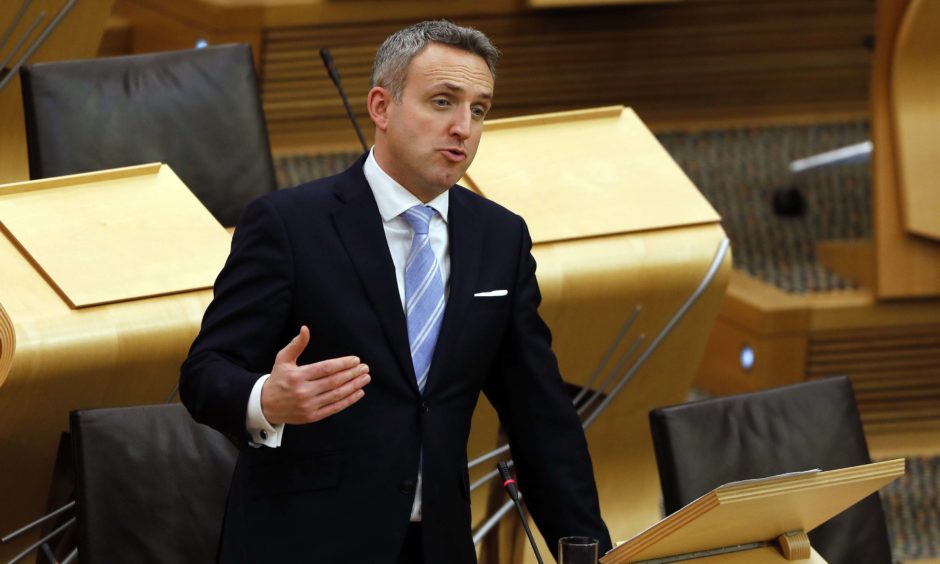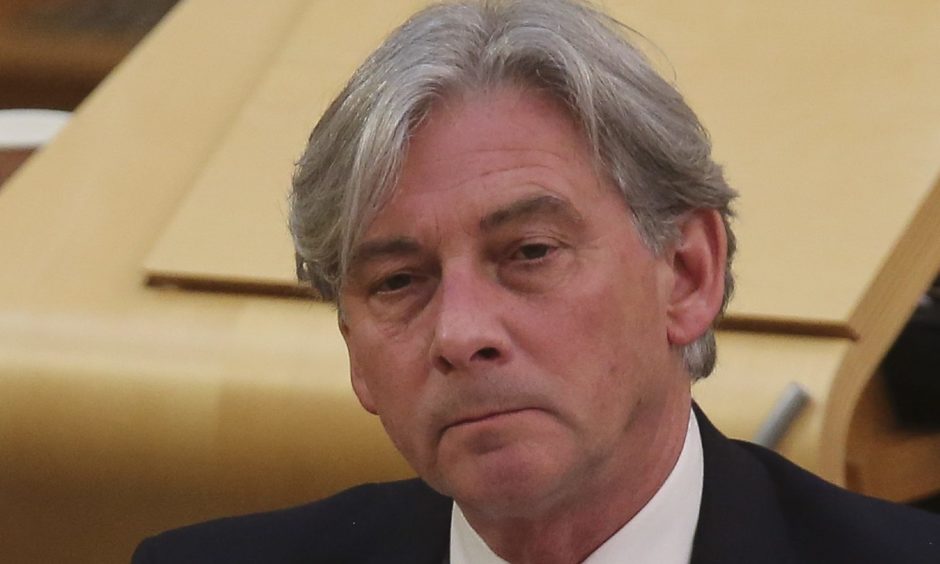NHS Scotland warned health chiefs that discharging elderly hospital patients would put pressure on care homes but told them to go ahead with the controversial policy anyway, newly released documents reveal.
Pressure mounted on Nicola Sturgeon and Jeane Freeman following the disclosure of an NHS Scotland letter confirming the Scottish Government was taking action to prepare care homes for an influx of residents at the outbreak of the Covid pandemic.
The letter, which acknowledged the strain this would put on the care sector, was sent to health boards and local authorities on March 6 – two and half weeks before Scotland went into lockdown.
It was followed by one from Ms Freeman to councils later in the month telling them there was an “immediate and urgent requirement” to increase support and staff capacity in care homes.
The correspondence, uncovered under Freedom of Information legislation, sheds more light on the pressure put on health boards to move elderly patients out of hospitals into care homes in order to free up beds to treat those suffering from the coronavirus.
The contents of the letters were described as “jaw-dropping” by Conservative health spokesman Donald Cameron, who said families of care home Covid fatalities deserved to know why the policy had been pursued.
Previously, the Scottish Government has confirmed 1,431 untested patients were moved to care homes between March 1 and April 21, before testing of discharged patients became mandatory.
Out of a total of 4,216 Scottish coronavirus deaths so far, 1,956 were in care homes – the equivalent of 46%.
At First Minister’s Questions, Ms Sturgeon said ministers had put in place guidance on March 13 that refers to the need for clinical screening of patients to take place.
The NHS Scotland letter revealed the Scottish Government was looking at moving patients into care homes when it was signed by Malcolm Wright, the then-chief executive of the body on March 6.
The letter also urged health boards and councils to prioritise and drive forward the transfer while acknowledging that it would put pressure on the care system.
“We now need to be able to create capacity and space within our hospitals in recognition that, as the expected rise of incidence of Covid-19 infection takes hol(d) in Scotland, this will place unprecedented demands on our acute hospital system by people who are critically ill,” said Mr Wright, who has since resigned from the post on health grounds.
“I appreciate that this necessarily increases the pressures on community health and social care systems at a point when there are challenges around how to provide care to vulnerable people in their own homes, with this population making up the overwhelming majority of people who need health and care provision.
“Nevertheless, I would expect that appropriate steps are being taken in local systems which are built into local planning, that demonstrate this is being prioritised and driven forward maximising the existing and current frameworks and resources within which you are able to operate.”
The NHS Scotland letter
The letter gives a target of reducing delayed discharge (or hospital bed blocking) from 1,650 to 1,250 by April 9.
It goes on to point out that there would be limitations on how this could be achieved, such as laws on adults with incapacity, availability of care home beds and provision of care at home.
But it adds that “all options” needed to be considered “to address existing barriers”, adding: “Indeed consideration of and action is already being progressed by the Scottish Government on some of these issues”.
Further evidence of the Scottish Government’s preparations to get care homes ready for an influx of patients came in a letter from Ms Freeman to councils and social care partnerships.
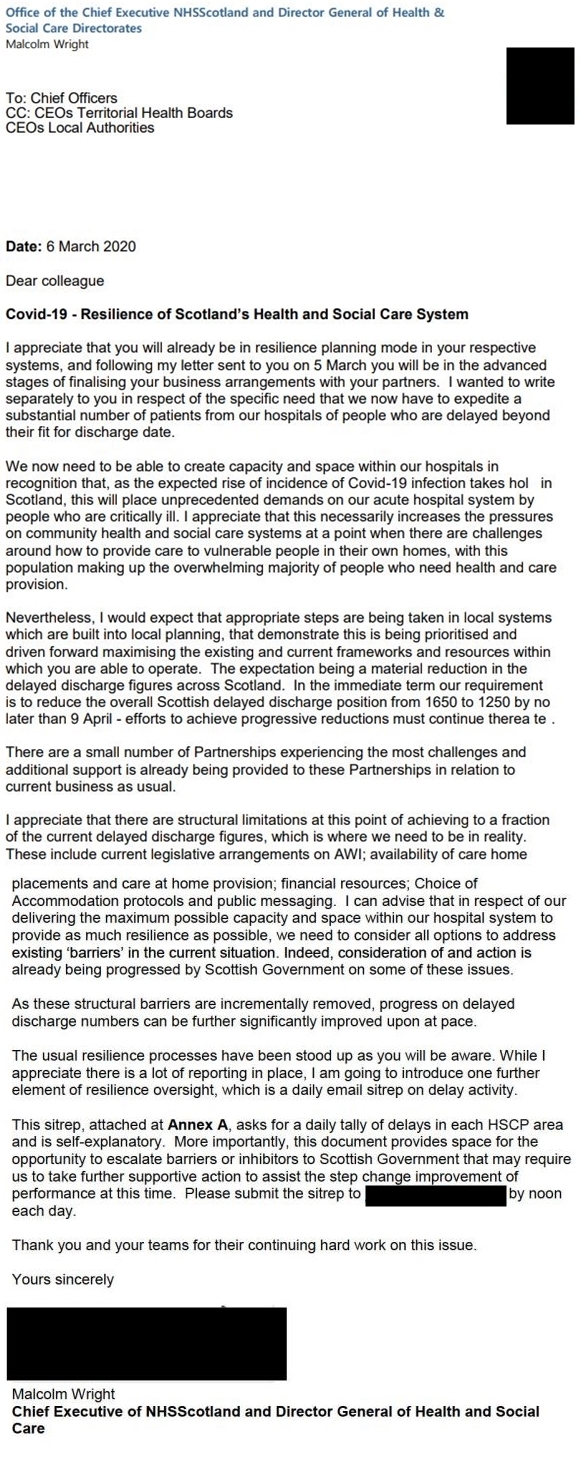
The letter, dated March 24, came to light following a Freedom of Information request asking for correspondence relating to the freeing up of hospital beds to create space for coronavirus patients.
In her letter, the Health Secretary offers more funding to care homes and stresses the need for urgent action to support the social care sector.
“In light of the current emergency which has been declared in the NHS in Scotland, there is an immediate and urgent requirement to increase the support and staff capacity in the social care sector, which includes nursing homes, care homes and care at home,” the letter said.
“The move aims to help the care system adapt to increased pressure placed on it by Covid -19, with many people requiring continued support for daily living, even if they have not contracted the virus.”
Jeane Freeman’s letter
The emergence of Ms Freeman’s letter came after it was disclosed at the weekend that she had written to health chiefs on April 10 thanking them for “tremendous progress” and for surpassing “challenging” targets after they moved 920 patients from hospital by April 8.
The Sunday Post published the letter after disclosing the previous weekend that 37 patients who had tested positive for Covid-19 were transferred into care homes between March 1 and April 21.
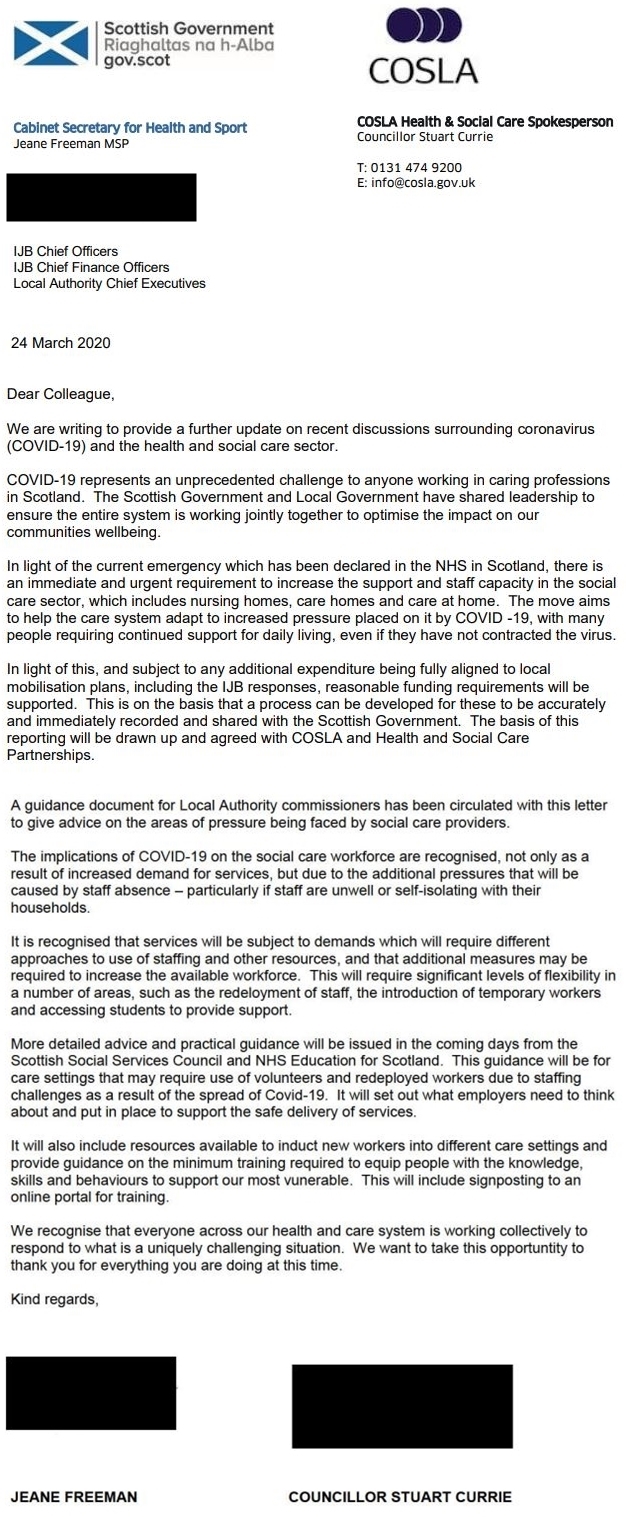
Donald Cameron, the Tory health spokesman, said: “These jaw-dropping revelations cast yet more doubt on the repeated assertions by SNP ministers that the policy of sending people to care homes had nothing to do with them.
“It’s one thing to warn health boards and councils that this policy would put pressure on care homes, but it is absolutely stunning that they told them to go ahead anyway.
“They underline the urgent need for Jeane Freeman and Nicola Sturgeon to be straight with the public. It should not take newspaper investigations to reveal what ministers and senior officials were actually doing as the pandemic took hold.”
Mr Cameron added: “Far too many vulnerable people were put at risk by this policy of transferring hospital patients into care homes and their families deserve to know why this was so.”
Lib Dem health spokesman Alex Cole-Hamilton said: “These letters provide yet more information that the urgent decant of patients from Scotland’s hospitals into the care home sector was largely driven by Scottish Government policy.
“Meanwhile, the international community was screaming about the threat of asymptomatic transmission and the importance of testing. Yet the Scottish Government proceeded to move these patients, whose Covid status was unknown.”
At her daily briefing, Ms Sturgeon said there was “no contradiction whatsoever” between the policy to reduce delayed discharge and March’s guidance for individuals going to care homes to have a clinical risk assessment.
The first minister said the government “couldn’t have been clearer” that it was “seeking to accelerate” a reduction in delayed discharge.
“We knew we had to have the capacity in our hospitals to deal with Covid and with Covid patients potentially coming into hospitals, it was even less of an appropriate place for older people to be,” Ms Sturgeon said.
Scottish Labour leader Richard Leonard said: “The SNP government promised to end delayed discharge by the end of 2015. But having failed to make good on their promise, SNP ministers then rushed to clear hospitals at the start of the pandemic, with tragic consequences. These letters provide yet more evidence that it is the First Minister and the Health Secretary who directed this policy, and they must account for their decisions.
“I have been calling on the First Minister to prioritise and properly fund social care for years, but it seems that the problem was only taken seriously when a global pandemic was already spiralling out of control. It is clear that Scotland’s care system is broken, and that is why I am campaigning to create a National Care Service with a new emphasis of putting people before profit.”
